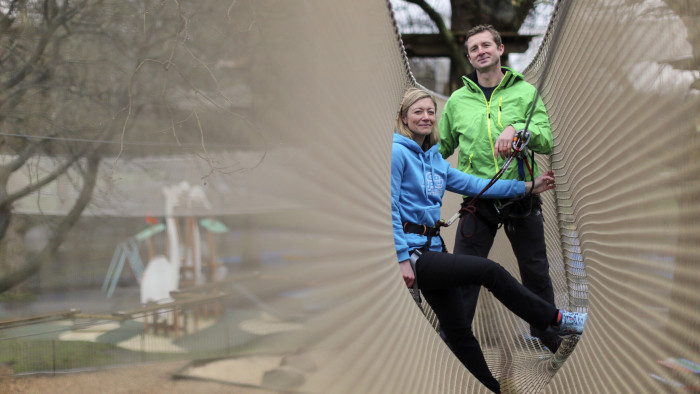Entrepreneurs mix study and networking

Simply sign up to the Business education myFT Digest -- delivered directly to your inbox.
Jamie Waller left school at 16 without any formal qualifications. He had been disqualified from the one GCSE exam he had bothered to sit after being caught writing on the table.
The next time Mr Waller sat a test paper was aged 37 at London Business School where he successfully applied for a place on the executive MBA. By that time Mr Waller had built JBW Group, a debt collection business with £100m ($139m) turnover, which recovers money owed to UK government departments, local authorities and private sector clients.
“Business school cannot create entrepreneurs,” says Mr Waller, who first made money aged 11, fixing bikes for other children and selling the spare parts for extra cash from outside his parents’ house in the deprived east London neighbourhood of Bethnal Green.
The value of LBS is its ability to teach the leadership skills needed to expand JBW from a 150-person operation to one employing more than 500, according to Mr Waller. “Personal development is key to all leaders,” he says. “Nobody is born with that expertise.”
Mr Waller is among the founders who explain their journeys as leaders of fast-growing companies, in the second series of the FT’s Start-Up Stories podcast, which starts on Monday. Business education has been critical for those featured in the 10 episodes, but many claim formal study is best combined with continued development through entrepreneurship networks.
Tristram and Rebecca Mayhew, the husband-and-wife team behind treetop adventure business Go Ape, who tell their story in the opening episode, both completed the Business Growth Programme, a part-time modular course at Cranfield School of Management.
“They made sure we didn’t blow up as we went for big hairy goals,” says Mr Mayhew, recalling the early stages of the business, which now employs more than 1,000 people across more than 40 sites in the US and the UK.
Mr Mayhew is also a member of the Young Presidents Organization, which has more than 23,000 members worldwide, and has provided a forum of fellow founders he meets each month. For the past three years he has attended YPO’s further leadership learning course, an annual four-day series of seminars at LBS.
As a former officer in the Royal Dragoon Guards, Mr Mayhew also underwent formal training at Sandhurst, the British military academy. While not known for its entrepreneurial teaching Mr Mayhew claims it boosted his confidence to make difficult decisions that have been key to Go Ape’s expansion overseas and in urban locations such as London’s Battersea Park.
The Mayhews hit upon the concept for Go Ape after seeing similar treetop adventure parks during a holiday in rural France. The idea appealed because it offered the chance to quit their corporate jobs in London to create a fast-growing company, while also enabling them to relocate and raise their family in the English countryside.
Although the concept of forest rope swings could be copied, the couple later realised that potential rivals decided against competing with them in the UK because their early marketing implied Go Ape was more established than it actually was. The story of Go Ape’s rise, recounted in the podcast, highlights the importance of strong relationships with business partners as well as the value of a formal business education.
Delays by their bank in processing a loan application meant the couple missed the first payment deadline set by their contractors, Altus, for their launch site construction. It was with great relief that Altus — a group of former alpine climbers who had been constructing courses in France since 1997 — told them to pay when they could.
“If they hadn’t done that . . . we would probably have gone bust before we even started,” Mr Mayhew says. Altus has since built all the Go Ape sites.
Comments